I have this method which I am trying to generate documentation.
/// <summary>
/// This method demonstrates taking a Func as argument and perform that action(Func) on a list of strings.</summary>
/// <param name="listOfStrings"> ... </param>
/// <param name="ActionToPerformOnEach"> ... </param>
/// <returns>Returns an <see cref="IEnumerable{String}" /> which has elements that resulted due to the Func action </returns>
public static IEnumerable<String> ActOnListWithFunc(List<string> listOfStrings, Func<string, string> ActionToPerformOnEach) {
foreach (string s in listOfStrings) {
string actedString = ActionToPerformOnEach(s);
yield return actedString;
}
}
This generates documentation like this (only Return Value section is shown)
Return Value
Type: IEnumerable<String>
Returns an IEnumerable<T> which has elements that resulted due to the Func action
Where I am describing the return value of the method, I want to use IEnumerable<string> but if you look the desscription it is generating IEnumerable<T>. The Type: (second line above) although is been picked up properly as IEnumerable<string>. Just the description line for the return value is not correct.
How do we describe IEnumerable<string> or IEnumerable<int> or any other specific type of enumeration in descriptions of parameters or return values, that is betwween <param> </param> or <returns> </returns> tags of the Method being documentated.
